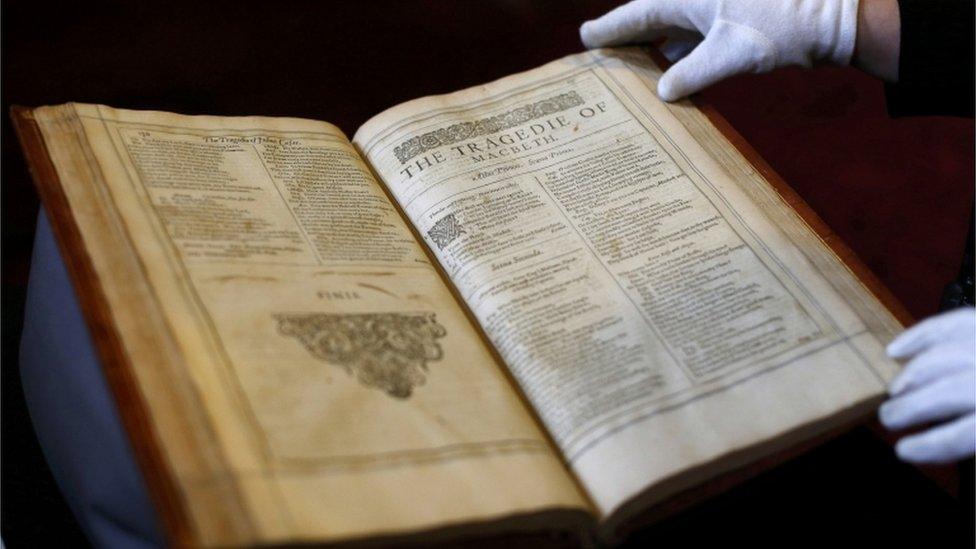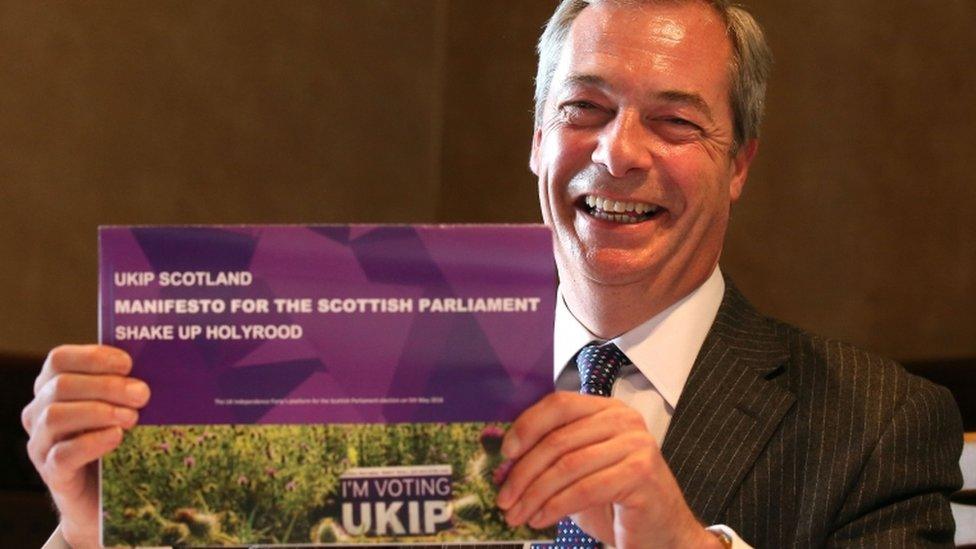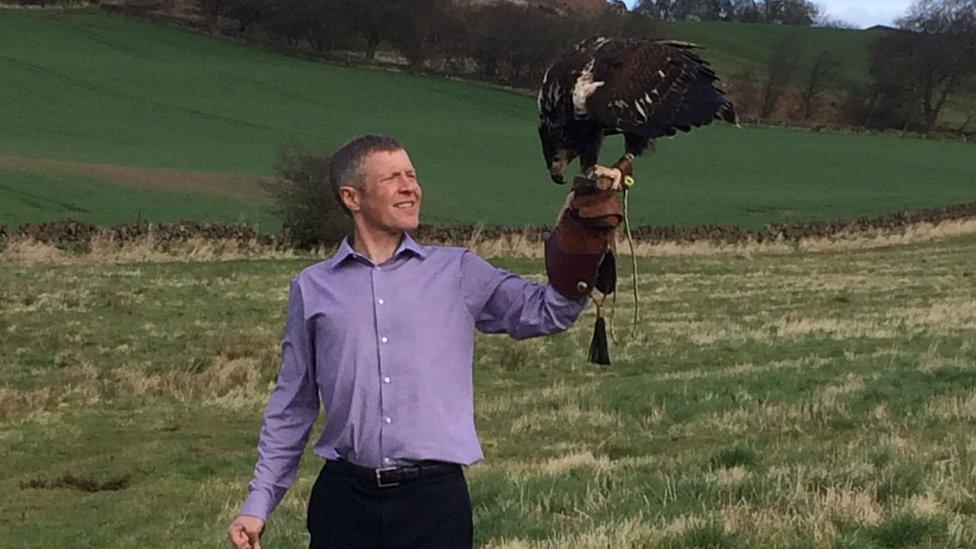Holyrood 2016: Lovingly crafted manuscripts
- Published

An original copy of the First Folio was uncovered on the Isle of Bute
Was that not a rare and remarkable document to emerge today, for the people of Scotland to peruse? Quite beautifully written, deftly structured - yet with key differences from previous versions.
No, not the UKIP manifesto, of which more later. Rather I am talking of the discovery of a Shakespeare First Folio at Mount Stuart House in Bute.
Consider the fact that masterpieces like Macbeth would not have survived without the First Folio.
Imagine the excitement of uncovering such a treasure. Imagine the thrill for the initially sceptical academic expert who validated the find.
Like Keats, on first reading Chapman's Homer, the joy would have been visceral:
Like stout Cortez when with eagle eyes
He star'd at the Pacific - and all his men
Look'd at each other with a wild surmise -
Silent, upon a peak in Darien.
Instead of a peak in Darien, it was a hotel in Edinburgh for Nigel Farage today, as he launched UKIP's manifesto for the Scottish Parliament. But, like Cortez and Keats, he's looking ahead and thinking big.
Entering to the sound of Scotland the Brave, essayed on the accordion, Mr Farage and UKIP's Scottish leader David Coburn forecast a "transformational" breakthrough for their party at this election. To date, the Holyrood benches have been UKIP free.
Like that First Folio, Messrs Farage and Coburn reckon their offer is a class apart from the fare on offer from the other parties, which they characterise as stolid and dull. The Beaumont and Fletcher of the 21st century.
They offer taxes no higher than elsewhere - with a new 30p intermediate rate. They offer lower business rates. They oppose the "bedroom tax".

Nigel Farage joined UKIP's Scottish leader, David Coburn, to launch the party's Holyrood manifesto
More widely, they offer "an end to political correctness in schools". They offer to restore the drink driving limit to the previous, higher rate and to allow pubs to create smoking rooms.
At last year's UK elections, they set out plans to restructure public funding in a way that would have cut Scotland's budget. Challenged on that today, they said the UK's finances had deteriorated and the entire position would require close scrutiny.
And, lest we forget, they favour withdrawal from the European Union with, they say, a concomitant return of powers to Westminster and Holyrood.
Is it conceivable that their stance on this could benefit them at the Holyrood elections, given the relatively high priority attached to the European issue at the moment because of the pending referendum? Mayhap, as Shakespeare might have said.
UKIP's rivals, entirely understandably, tend to play down such a prospect. For example, Ruth Davidson of the Conservatives said the UKIP Holyrood pitch is simply a rehearsal for the referendum, not a genuine commitment to Scottish devolved politics.

Willie Rennie got up close and person with Ripley the African fish eagle at a bird of prey centre in Fife
Elsewhere, Labour and the SNP were prioritising the issue of poverty. And Willie Rennie of the Liberal Democrats was keeping Ripley the African fish eagle at a sensible arm's length.
The latter first. Mr Rennie was at a falconry centre in Fife. His objective was to promote rural policy. Ripley's objective was to grab as much grub as possible from Mr Rennie's tentatively outstretched hand.
Reverting to the former, I found the exchanges between Labour and the SNP fascinating. They each argued that their policies - including differentiation on tax - would be best placed to address poverty in Scotland. Thus the fundamental issue of tax was focused more sharply to consider the prospects for the disadvantaged.
To be fair, both the Lib Dems and Tories had things to offer in this field too. Mr Rennie said enhanced funding for education, funded by higher tax, was the way to tackle poverty at root. Ms Davidson talked of policies on housing and childcare to help the poor.